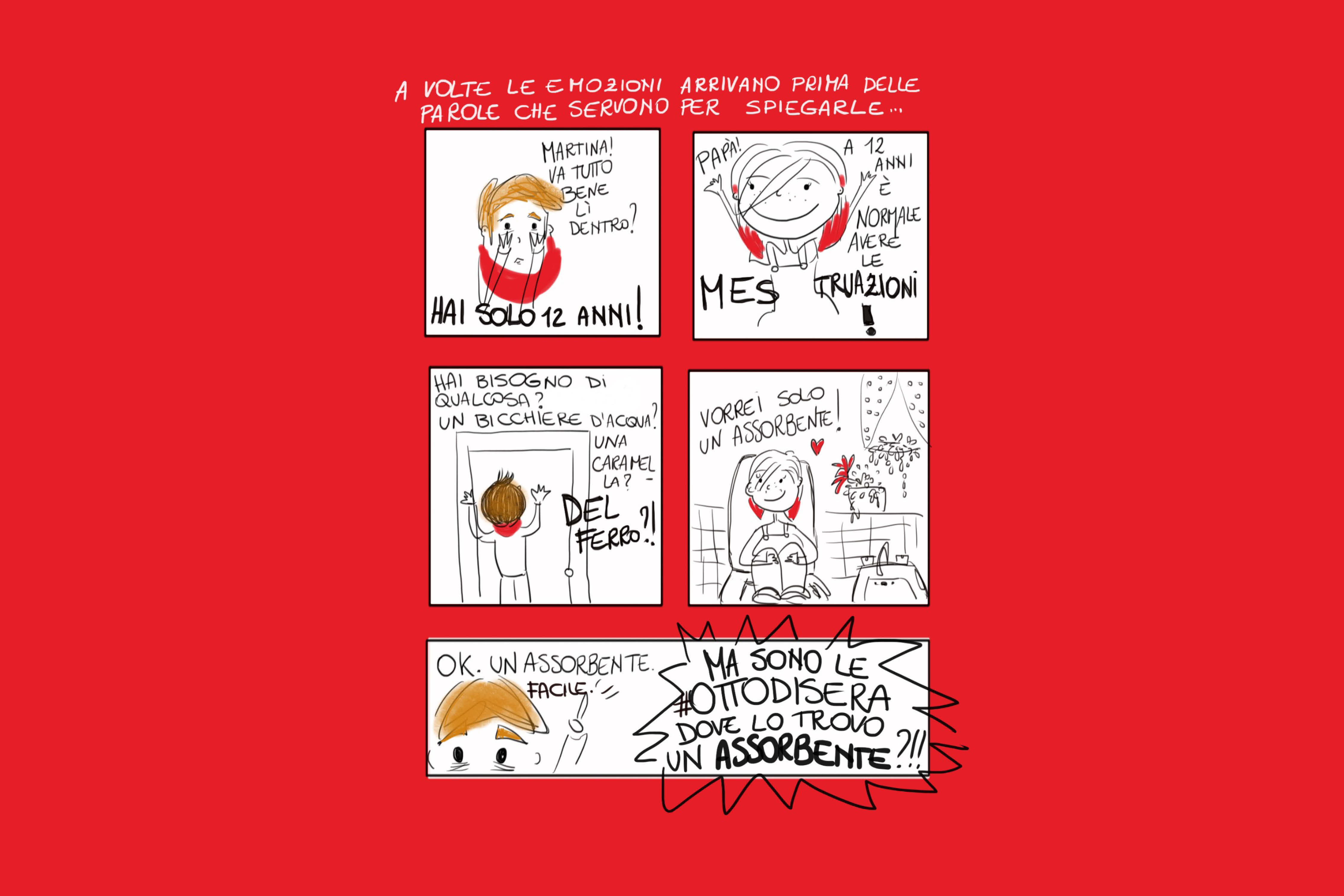production Arione de Falco
authors Annalisa Arione, Dario de Falco
direction Annalisa Arione, Dario de Falco
cast Annalisa Arione, Dario de Falco
12+
THE THEMATIC
From pre-adolescence onwards, love knocks on the door with a new dress. This emotion overwhelms us without warning and finds us unprepared. It is a culturally frightening subject. But we should talk about emotions. Why? Because one in twenty teenager says she has been physically attacked by her boyfriend, one in ten is afraid of the person next to her, one in ten has been verbally attacked by her boyfriend. Three times in four the girl forgives her partner.
THE PLAY
"Storia di un No” tells of Martina, who is fourteen years old, has a carnivorous plant named Yvonne and white headphones. Martina does not have branded clothes, not even a scooter, and she doesn't have a mother.
"Storia di un No" also tells of Martina's dad: an attentive dad who works from home, loves Jane Austen and cooks lasagna whenever there is something important to celebrate.
"Storia di un No" tells of Alessandro, who has a branded sweatshirt and a tuft to which he devotes twenty minutes every morning. Alessandro immediately falls in love with Martina.
"Storia di un No" is the story of an encounter, of a first kiss that is not as dreamed of but which is still beautiful, of families that are not as we would like them to be, of the need to consider the other half of the couple to be functional to us and to our needs, of love confused with possession.
It is the story of Martina who chooses to think of herself as ‘a whole’ and therefore says “No”, creating with her awareness a chain reaction capable of changing things.
Can a teenager change the world? “Storia di un No” is about this.
And also about Orsetta, Eugenio, Favetti, Annalisa and Dario.
THE PREPARATION
The artistic path that led us to “Storia di un No” began with a series of workshops on the theme of gender equality and gender stereotypes. Annalisa, in particular, held a workshop for theatrical improvisers entitled "Other’s Stories" (which was rewarded as the best format at the Improteatro Chianciano 2018 gathering), while Dario held specific workshops for pre-adolescents and adolescents on the thematic developed in the play. Martina and Alessandro, the protagonists of our story, were born from improvisations made during these workshops.
This phase was followed by a long theoretical preparation session on gender studies and consultation with experts.
THE STAGING
Role play is the engine of our theatrical action.
We have two narrators on stage: to talk about emotions you need to be at least two.
The narrators have an “obscene” task: to describe to the audience the moods of the characters they play. In such a delicate context, the emotional world of teenagers, in which emotions often come before the words that are used to explain them, telling the audience what the character feels in real time is a focused choice. The use of continuous ‘a parte’ addressed to the public informs but also involves the public of children in finding a possible emotional vocabulary.
The stage is empty, the space is designed by the bodies of the narrators and the musical atmospheres created by Enrico Messina.









































